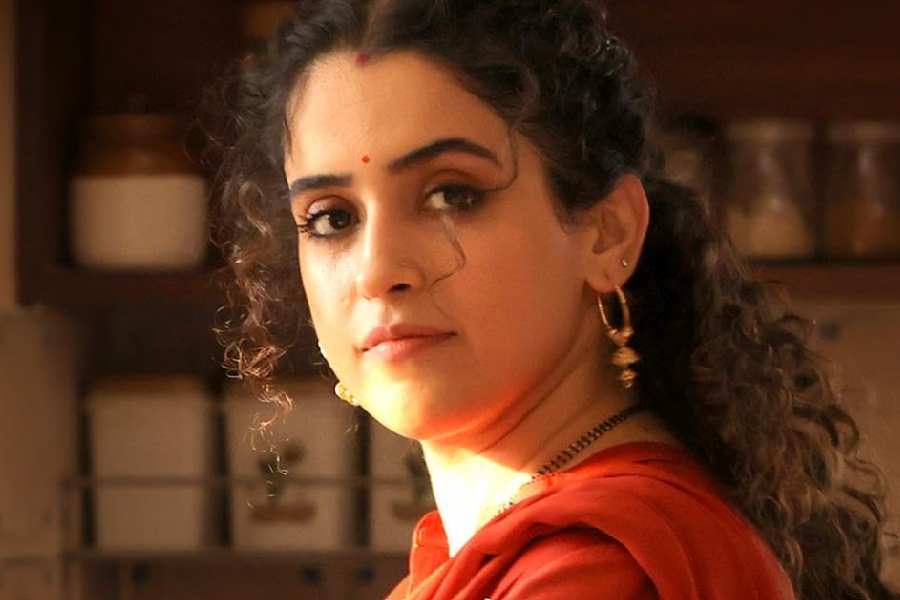A Hindi remake of Jeo Baby’s 2021 Malayalam film The Great Indian Kitchen, which exposed the romanticisation of women’s roles in traditional households, Arati Kadav’s Mrs., headlined by Sanya Malhotra, does not fully channel the raw power of its predecessor but makes a mark nonetheless.
The plot of Mrs., streaming on ZEE5, remains largely unchanged. Richa (Sanya Malhotra) is a dance teacher who enters into an arranged marriage with Diwakar (Nishant Dahiya), a well-to-do gynaecologist. Her new life seems promising at first but Richa is pulled into the drudgery of daily housework before long, with her father-in-law, Ashwin (Kanwaljit Singh), keeping a strict watch that she lives up to her duties. “I like simple, home-cooked food,” says Diwakar, which ensures that Richa now has to knead dough, grind spices by hand and serve hot rotis straight off the wok.
What Mrs. does particularly well is expand the role of the father-in-law. Ashwin, played with unnerving subtlety by Kanwaljit Singh, is not a tyrant in the conventional sense. He does not yell or hurl insults; instead, he wields passive aggression like a weapon. His dismissive comments, patronising smiles and quiet enforcement of ‘tradition’ become as suffocating as any physical constraint. His wife, a PhD-holder who ‘chose’ to stay at home, is held up as the ideal, a reminder that education does not necessarily mean liberation.
Sanya Malhotra is luminous as Richa. Her transformation from a hopeful newlywed to a woman on edge is superbly handled. Her anguish is visceral, her silences are loaded with unspoken rage and when she finally reaches her breaking point, the moment is earned.
Nishant Dahiya, as Diwakar, is equally effective. He is neither overtly cruel, nor is he a typical domineering husband. It is his indifference and his inability — or refusal — to see his wife’s distress which is most insidious. It is so deeply ingrained, he doesn’t even recognise it as such.
Kadav, who previously helmed the imaginative sci-fi indie Cargo, brings a keen eye for detail and an understanding of how the smallest acts of control can feel monumental. A leaking kitchen sink that goes unrepaired for days, a pile of unwashed clothes that only Richa is expected to tend to, the endless cycle of cooking and cleaning that is neither acknowledged nor appreciated. The metaphor of the stagnant water accumulating in a bucket is potent.
Unlike the damp and dingy kitchen of the Malayalam original, the setting in Mrs. is brighter and more polished. But though it is a well-appointed home equipped with a modern kitchen, the roles haven’t changed. While The Great Indian Kitchen was told with fury, Mrs. does not soften the message but frames it differently. The anger of the original is replaced with a deep sense of suffocation, a quiet despair that keeps on building up until it can hold no longer.










